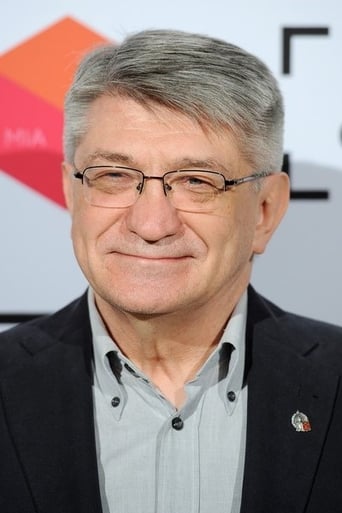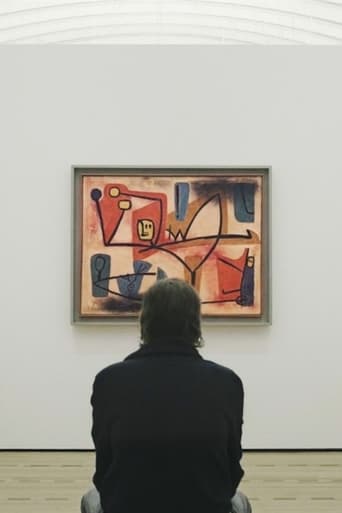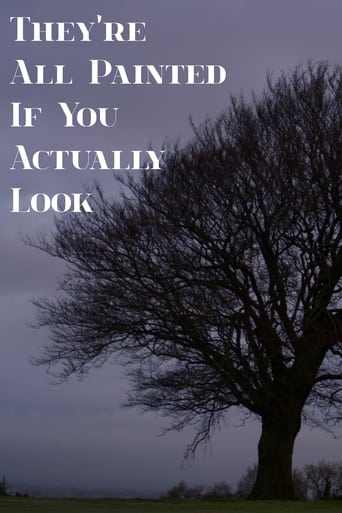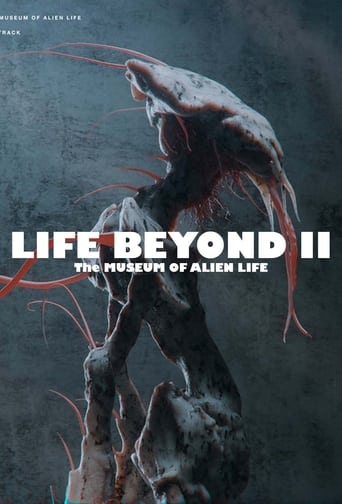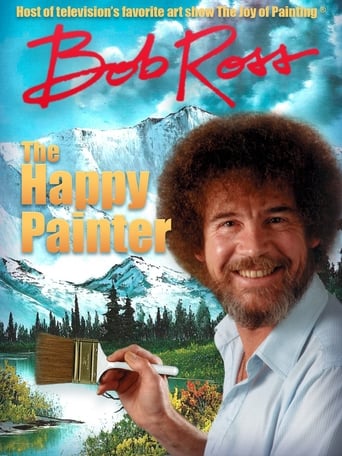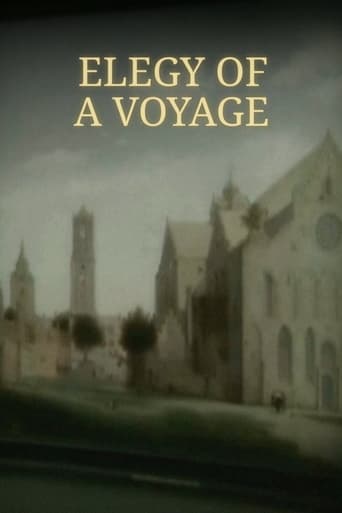
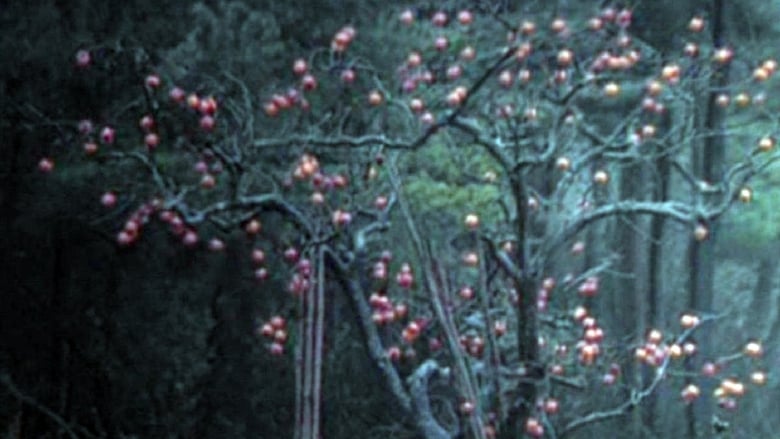
Elegy of a Voyage (2001)
This intimately narrated journey from Russia to Rotterdam, via rail, road and Finnish ferry, is a melancholy meditation on divinity, time and place in art, purpose (or its lack) and the loneliness of the soul. Passing through misty snowscapes, half-glimpsed cities and the icy night sea-swell.
Watch Trailer
Cast


Similar titles
Reviews
A simple trip from somewhere in Russia to Rotterdam via Helsinki is turned into a highly poetic and slightly surreal commentary on human place in history (mythological), and man's striving to transcendence (unachievable). This, of course, includes thinking aloud about Russia, and two of the principal questions are asked. They are not, traditionally, "Where am I?" and "How did I end up here?" although they are voiced in the film, too, but, "What are they all thinking?" and "Why are all those people look at me like this?" They are really important if one wants to tap into "the mysterious Russian soul."Clearly, the Russian Orthodox church does not yield any answers, neither does it provide a safe haven for the protagonist, for people are cold there, they cast evil glances, and a monk/priest is unable to answer simple spiritual questions (not one of them could, being stupid, greedy and, generally, not very literate, not to mention spiritual). What the protagonist seeks is clearly found in the old European culture, shown through the works of Old Dutch Masters. So much for the "special Russian way" in culture, now enforced by the present "huylo's" administration.Plus, the Russian title is mistranslated from the original French. It's not "The Elegy of a Road," it should rather be a passage or, well, transcendence.
It is hard to classify an artwork like this, neither documentary nor movie, at least not in the classic definition. It has not any definite and describable plot, nor a linear story of any kind. It's more a fireside tale, some friend telling you stories in a cold night. The viewer himself finds out to be the traveller, maybe better wanderer, and the mesmerizing voice of the author leads him to a plane in which the need of a logical sequence of events is definitely blown away, in a kind of dream where images are offered and much more are suggested, so that the beholder ends up to be the traveller of his own thoughts. Like during the "Faust" of Sokurov, I found myself hypnotized by the crafty art of visual representation, with no more resistance to this strange way of filming without any rule. I cannot say of having seen a "movie", but surely I've been left richer.
Here is some interpretation of this wonderful visual poem. It starts in Russia where the narrator (who is only seen as a shade, but seems to be Sokurov) passes through a town while remembering its inhabitants' intense fear of death. Next he observes a baptism in the company of a monk. He wonders why Jesus did not beg to be crucified, as this was his destination. He seems to ask: How could the world be redeemed if even God is afraid of death? He then embarks on a journey, taken along by some unknown force, across Finland and Germany, to the Netherlands. In a motorway restaurant he meets a young Dutchman who talks about how humility taught him love to all people, and how God is equated with love - still very Christian, but a more humanist and functional view of God. This seems to liberate man from all expectations towards God and gives him back the freedom to create himself. Thus, in the end, the observer walks through a paintings gallery (actually the Boymans-Van Beuningen Museum in Rotterdam), and just like in the beginning, vaguely remembers a town and its people from an 18th century painting. Everything there is frozen in time, and with a magical gesture he revives life in the picture - while God has probably abandoned this world to create a better one elsewhere (this is not my interpretation, but it's in the text), man can provide life to this world himself. Just my understanding of this film, but, as with all good art, there's much more to it... All images here look like they were filmed on a water surface, but this is not only done to create a dream atmosphere, but also to stress that we are looking at an artificial image - something we tend to recognize in painting but less so in film. It's important here because Sokurov links film to painting.
This was the most beautiful movie I've seen in a long time. It's only 46 minutes, and it's part of a series of "Elégies" by Sokurov. In a dream-like atmosphere, the narrator is taken in a trip without knowing the purpose or the destination. Most of the film is made of the images he is seeing, and the thoughts he's having along the way. Maybe this is life, itself.It's only fair to say that most of my colleagues, which I urged to see the movie, were disappointed. It's not a linear movie, with a definite story. Actually, this is one of the things I liked!I've seen this movie as part of the 25th Sao Paulo International Film Festival, and was, by far, the one I liked the best. Extremely beautiful, very moving. For me, anyway...


